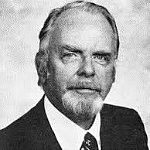Quotes about God-Foreknowledge
The foreknowledge spoken of (in Romans 8:29) is foreknowledge of persons, not events. The statement reads, “whom He foreknew…” You see this as well in Romans 11:2, speaking of His endearment to Israel: “God did not reject His people whom He foreknew.” Therefore we can deduce that foreknowledge as related to salvation is not just seeing a person’s conversion experience prior to election and therefore electing on the basis of the individual’s choice. It is a foreloving of persons.
A Three-legged Stool: All Side of God’s Salvation Process, Christian Communicators Worldwide, www.CCWtoday.org. Used by Permission.
The word foreknowledge is actually better understood as “thought of endearingly beforehand,” or “foreloved,” or “foreordained with forethought.”
A Three-legged Stool: All Side of God’s Salvation Process, Christian Communicators Worldwide, www.CCWtoday.org. Used by Permission.
[God’s foreknowledge is] the selective knowledge of God that makes one an object of God’s love; it is more than mere knowledge or cognition beforehand. The term focuses on God motivation to act, relating to persons rather than what the persons will or will not do.
In this context, God’s foreknowing is divinely purposed, foreknowing only those who would be effectually called in time to saving faith in Christ. When the New Testament speaks of God foreknowing, the object is always people rather than facts, and these people are always objects of His redemption.
God the Father by John MacArthur and Richard Mayhue taken from Biblical Doctrine by John MacArthur and Richard Mayhue, copyright 2017, Crossway Books, a division of Good News Publishers, Wheaton Illinois 60187, www.crosswaybooks.org. Page 177.
God is omniscient and knows everything. He has known everything from the beginning. Nothing is a surprise to God, nor does He ever come into possession of new knowledge. Thus God knows all people. But [foreknowledge] means more than an intellectual knowledge. It means that God knows some in a special way. In grace, in life from eternity. This is the initiative of our salvation. Redemption has its rise to God and not in man (J.P McBeth).
When the solemn and blessed subject of Divine foreordination is expounded, when God’s eternal choice of certain ones to be conformed to the image of His Son is set forth, the Enemy sends along some man to argue that election is based upon the foreknowledge of God, and this “foreknowledge” is interpreted to mean that God foresaw certain ones would be more pliable than others, that they would respond more readily to the strivings of the Spirit, and that because God knew they would believe, He, accordingly, predestinated them unto salvation. But such a statement is radically wrong. It repudiates the truth of total depravity, for it argues that there is something good in some men It takes away the independency of God, for it makes His decrees rest upon what He discovers in the creature It completely turns things upside down, for in saying God foresaw certain sinners would believe in Christ, and that because of this, He predestinated them unto salvation, is the very reverse of the truth. Scripture affirms that God, in His high sovereignty, singled out certain ones to be recipients of His distinguishing favors (Acts 13:48), and therefore He determined to bestow upon them the gift of faith. False theology makes God’s foreknowledge of our believing the cause of His election to salvation; whereas, God’s election is the cause, and our believing in Christ is the effect.
The Attributes of God, Baker Book House, p. 23.
Get this book!
God foreknows what will be because He has decreed what shall be. It is therefore a reversing of the order of Scripture, a putting of the cart before the horse, to affirm that God elects because He foreknows people. The truth is, He “foreknows” because He has elected. This removes the ground or cause of election from outside the creature, and places it in God’s own sovereign will.
The Attributes of God, Baker Book House, p. 26.
Get this book!
The fact is that “foreknowledge” is never used in Scripture in connection with events or actions; instead, it always has reference to persons. It is persons God is said to “foreknow,” not the actions of those persons.
The Attributes of God, Baker Book House, p. 24.
Get this book!
The foreknowledge of God is based upon His decree, plan, or purpose which expresses His will, and not upon some foreseen act of positive volition on the part of man.
“But,” say others, “God has elected them on the foresight of their faith.” Now, God gives faith, therefore He could not have elected them on account of faith which He foresaw.
Election took place, not on the basis of foreseen faith, of the obedience of faith, of holiness, or any other good quality and disposition, as though it were based on a prerequisite cause or condition in the person to be chosen, but rather for the purpose of faith, of the obedience of faith, of holiness, and so on.
The Canons of Dort, The First Main Point of Doctrine: Divine Election and Reprobation. Article 9- Election not based on Foreseen Faith.
It is absurd to think that anything in us could have the least influence upon our election. Some say that God did foresee that such persons would believe, and therefore did choose them; so they would make the business of salvation to depend upon something in us. Whereas God does not choose us FOR faith, but TO faith. “He hath chosen us, that we should be holy,” (Ephesians 1:4), not because we would be holy, but that we might be holy. We are elected to holiness, not for it.
A Puritan Golden Treasury, compiled by I.D.E. Thomas, by permission of Banner of Truth, Carlisle, PA. 2000, p. 83.







